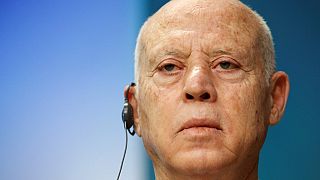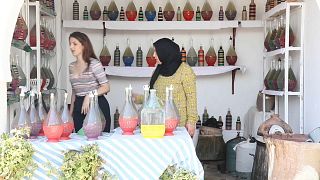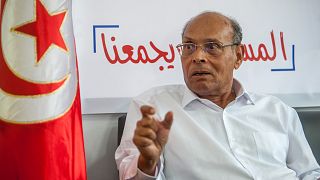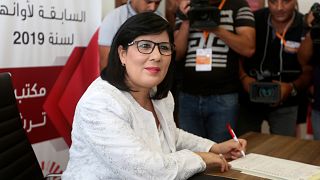Tunisia
The first queer play to be staged in Tunisia has premiered in the capital, Tunis.
Director Essia Jaibi's latest work aims to challenge conservative attitudes in a country where same-sex acts are punishable by prison terms.
"Flagranti" (or "In the Act"), deals with "a reality that we pretend not to see", said Jaibi.
The work, co-produced by LGBTQ rights group Mawjoudin (translating to "we exist"), is played by six mostly amateur actors aged between 23 and 71, reflecting a decades-long struggle for gay rights in the North African country.
Infused with black humour, it tells the stories of people who have suffered violence at home, in the workplace and in public.
Tunisia is seen as relatively liberal on social issues compared with other Arab countries, but nevertheless imposes sentences of up to three years in prison for "sodomy" for both men and women.
"Imagine depicting stories with things that actually happen to people, to Tunisians, on a daily basis, talking about laws, regulations, definitions, on the constitutions, trying to educate people. This was more than just a play, this was like, an empowering event," said audience member, Alay Aridhi.
The country saw a rise in public LGBTQ rights activism in the years following its 2011 revolution that kicked off the Arab Spring uprisings.
But despite years of efforts, rights groups say the community is still vulnerable, with as little as a photo on a telephone potentially leading to arrest, physical violence and anal examinations.
The notorious Article 230 of the penal code saw 59 people jailed between early 2020 and last October, according to Mawjoudin.
The play, inspired by real events, "talks about a taboo subject, a reality that in Tunisia we keep pretending not to see, which this show is trying to bring to the public's attention," Jaibi said.
Mawjoudin member Karam Aouini said the play aims to challenge "discriminatory" mentalities and campaign for an end to a "backward law", as well as promote queer art.
The two-hour play deals not only with LGBTQ issues, but also other problems facing all Tunisians: police and judicial corruption, impunity and the brain drain as people leave to seek better economic prospects in Europe and elsewhere.
When the play ended, the audience erupted into a storm of applause.
Salim, a 24-year-old member of the LGBTQ community, said the play had touched him deeply.
"I saw my life on the stage. It was overwhelming, I had a lump in my throat," he said.
Rights groups are continuing to campaign for an end to Article 230, first introduced by French colonial administrators in 1913.
But with parliament dissolved and the country in political turmoil after President Kais Saied's power grab last year, no such move is on the radar for now.
The Tunisian president, whose July power grab allowed him to issue laws and seize control of the judiciary, has said he is opposed to jail terms based on sexual orientation -- but also to the full decriminalisation of homosexuality.













00:50
Ons Jabeur retires from Wimbledon Opener due to breathing issues
02:03
Libya hosts African volleyball championship
01:40
‘The Herds’ puppets highlight climate change in Lagos
Go to video
Tunisia: new Human Rights Watch report finds dramatic increase in politically motivated arrests
Go to video
The EU moves to fast-track asylum claims by migrants from 7 countries to speed deportation
01:59
Tunisians observing Ramadan turn to snails as meat prices soar